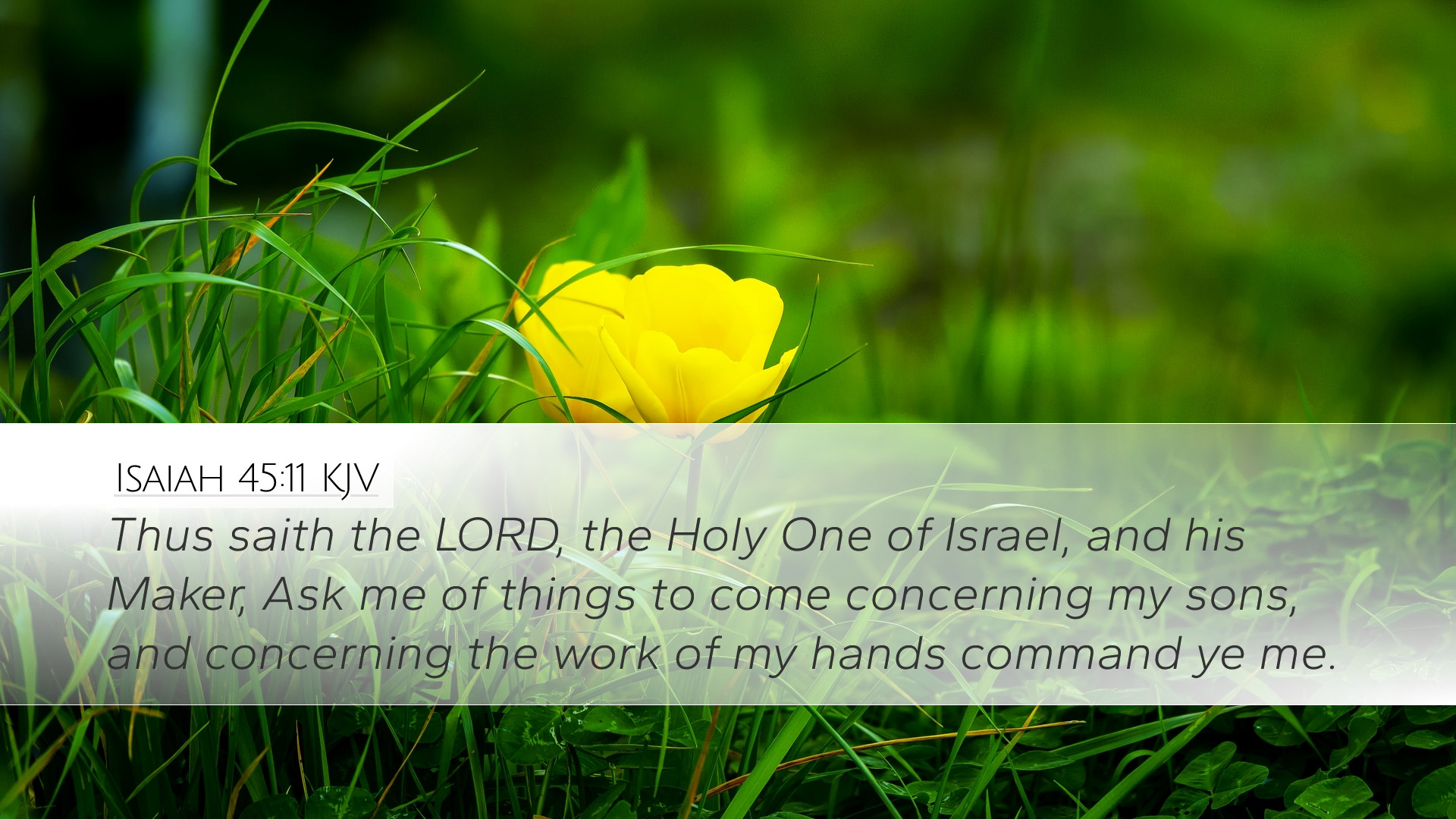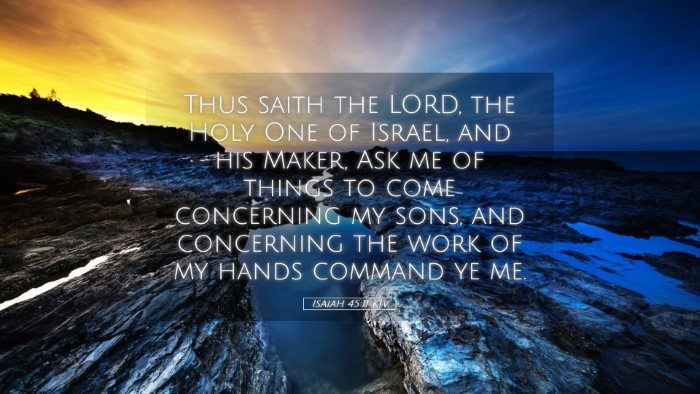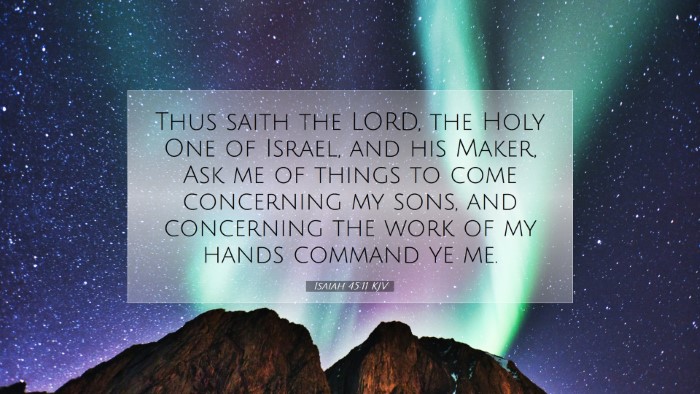Commentary on Isaiah 45:11
Verse: "Thus saith the LORD, the Holy One of Israel, and his Maker, Ask me of things to come concerning my sons, and concerning the work of my hands command ye me."
Introduction
This verse from the book of Isaiah serves as a powerful declaration from God, inviting His people to engage with Him in prophetic matters concerning their future. The context of this invitation and its implications provides a rich area for theological exploration and application.
Contextual Analysis
The prophecy of Isaiah is situated in a tumultuous period for the Israelites, marked by exile and uncertainty. God, through His prophet Isaiah, reassures the people of Israel of His sovereignty and the plans He has for their future. This verse is particularly striking as it presents God not only as the Creator but also as one who invites His creation to inquire about future events. The dual address to the “Holy One of Israel” and “his Maker” emphasizes both His holiness and His authority as the Creator.
Insights from Public Domain Commentaries
-
Matthew Henry
Matthew Henry highlights the significance of God’s invitation to “ask” concerning future matters. He suggests that this expression reflects God's willingness to reveal His plans and intentions to His people. Henry emphasizes that this invitation is a call to prayer and supplication, indicating that God desires a relational interaction between Him and His followers. Furthermore, he notes that the phrase "concerning the work of my hands" hints at God’s ongoing involvement in the world, directing the affairs of men toward His divine purposes.
-
Albert Barnes
Albert Barnes provides an understanding of the term “command ye me,” interpreting it as God’s permission for believers to approach Him with boldness. He clarifies that this does not imply that humanity would have authority over God, but rather that there is an openness in prayer that allows believers to present their requests with confidence. Barnes also relates this idea to the covenant relationship between God and Israel, emphasizing that requesting from God is an expression of trust in His sovereignty and provision.
-
Adam Clarke
Adam Clarke analyzes the theological implications of God as both Holy and a Maker. He points out that the nature of God’s holiness demands a reverent relationship, yet it is tempered with His desire to communicate and cooperate with humanity. Clarke suggests that the verse illustrates a profound truth about God's character: He is transcendent yet imminent. Additionally, Clarke discusses the eschatological dimensions of the verse, positing that it reflects an assurance that God will fulfill His promises in history, especially concerning the developments for Israel’s future.
Theological Implications
The invitation found in Isaiah 45:11 contains significant theological implications regarding the nature of God and His relationship with humanity. The divine desire for engagement illustrates a relational aspect of God, inviting believers into a dialogue about their futures. It also emphasizes the sovereignty of God and His authority over the unfolding events of history. The balance between God's holiness and relational proximity creates a framework for understanding prayer—where believers can confidently approach God, trusting in His plans while recognizing His ultimate authority.
Application for Today
For pastors, students, theologians, and Bible scholars, Isaiah 45:11 offers rich insights into prayer, prophecy, and God’s sovereignty. In pastoral practice, this verse could enhance the understanding of prayer as a dynamic conversation with God, encouraging congregants to seek divine guidance and insight confidently. The theological insights can form a basis for teaching about the nature of God—His holiness, creativity, and willingness to cooperate with His creation in significant ways.
Conclusion
Isaiah 45:11 stands as a compelling call from God, a reminder that He invites His people not just to submit to His will but to engage with Him in the unfolding of His purposes. This verse encapsulates the interplay of divine sovereignty and human participation, serving as a profound text for reflection and teaching within the faith community. The rich insights from commentators such as Matthew Henry, Albert Barnes, and Adam Clarke can further illuminate this text, providing layers of meaning for contemporary readers.


